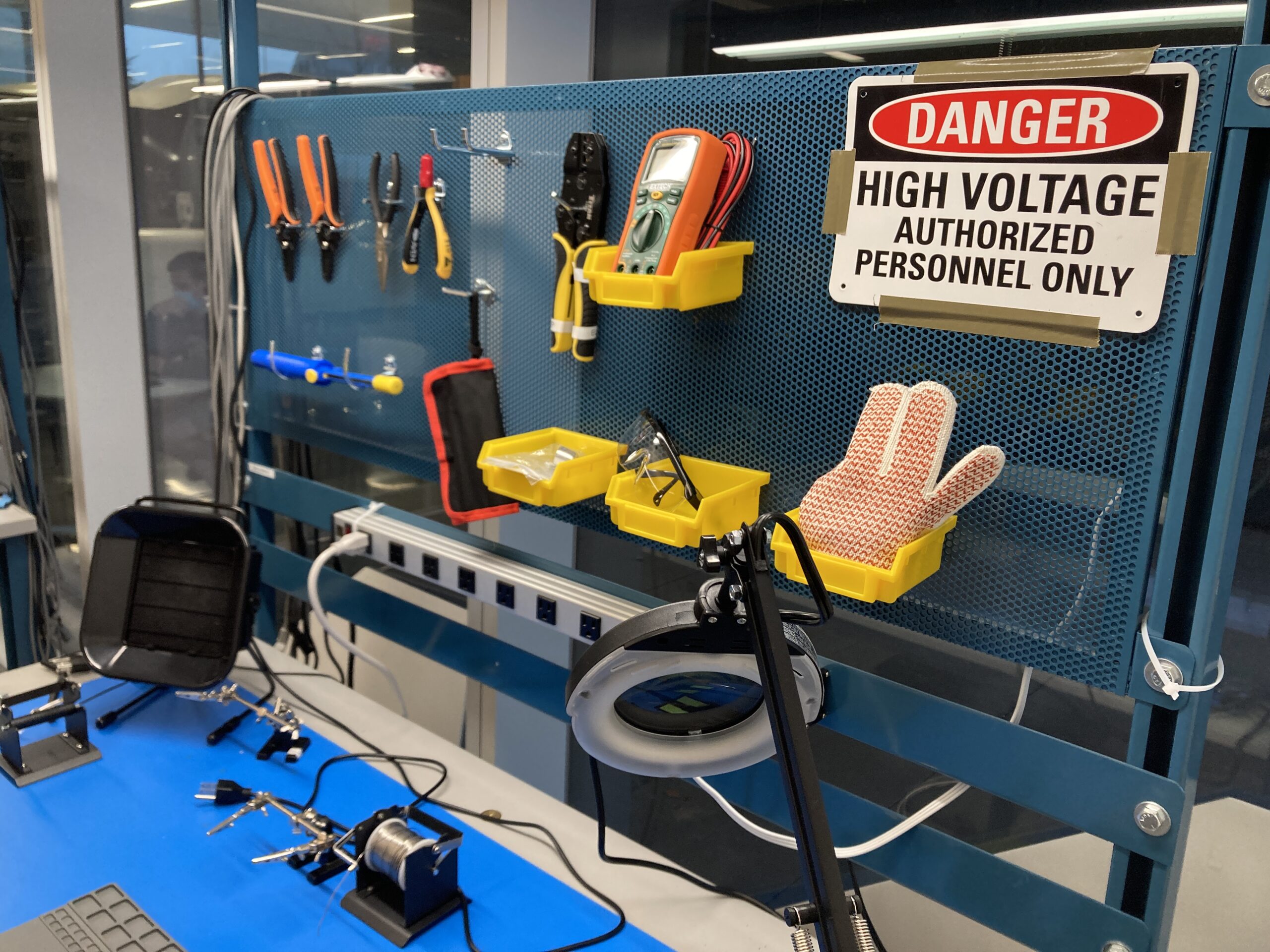Electrical and computer engineering majors gain real-world experience through a capstone course that pairs students with companies. PHOTO CREDIT: Hannah Charron
The capstone course for University of Rhode Island electrical and computer engineering majors has been running since 2008, but after a major revamp in 2017, students are now being given the opportunity to gain real-world experience.
ELE 480: Capstone Design I and ELE 481: Capstone Design II are the electrical and computer engineering capstone courses for senior electrical and computer engineering students. These courses are run by professor and Program Director Harish Sunak. The two-semester long capstone includes student collaborations with industry sponsors like Acumentrics, Rite Solutions, and Zebra Technologies, to work on real-world engineering problems.
The course is valuable to students because they bring years of theory into practice and work in internship-like positions that often turn into careers, according to Sunak.
Sunak works with sponsors to make a list of real problems that companies face and how to get students interested and involved with solving those problems. The companies write up formal project proposals, then students rank their interest in the proposals and complete interviews with the capstone directors. The directors, consisting of Sunak and consulting technical directors Brendan Smerbeck and Mike Smith, work to put students in the programs and groups best suited for their skills and interests.
One of the groups in this year’s capstone class consists of four electrical engineers: Anissa Elias, Christopher Charron, Nicholas Duarte and Shaun Thurber, who are working on designing a system to measure the health of batteries.
All members agreed that being together in a group has been invaluable, and the camaraderie of working together on such an important project has made the course less stressful.
“It’d be a lot harder to work individually and bounce ideas off of,” Thurber said. “I’m an extrovert, so I like being around people.”
The group noted that the hardest part of the project so far has been trying to find which direction to go in. They need to come up with a mission statement that satisfies their directors and they’re still fine-tuning the details of what exactly their company wants them to create. Students have until the ELECOMP Summit in May to design, construct, and test their projects, and to create presentations for the summit.
“We have to figure out the best way to do something that’s never been done,” said Duarte. “It’s research and development in the dark.”
Anna Skelly, an electrical engineer that graduated last year from URI’s engineering program, works with Sunak to help students currently enrolled in the capstone program. While she was a student, Skelly’s project focused on integrating a fault detection unit into fans that can detect if a fan is not working correctly.
The most challenging issue Skelly said she faced was burnout towards the end of her senior year. She said working on the final details of the project, finals for her other classes and graduation all at once was stressful.
“It’s definitely hard, but it’s worth it in the end,” Skelly said. “Because you gain so much experience through doing just the annoying stupidly hard stuff.”
At the end of the year, all of the projects are presented at an ELECOMP Summit— a networking event for students and for new potential companies that are interested in working with the URI engineering program. Once all the groups present their projects, future sponsoring companies vote on the best projects, and the top three teams are rewarded with cash prizes of up to $1,000 per student.
Sunak has full confidence in the program and believes it is essential for students to take part in these capstones to get a feel for what a real engineering job is like.
“Without this,” Sunak said, “they are fish out of water in the real world.”





